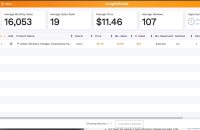Buying used cars for sell includes several means, from finding the right vehicle to finishing the necessary paperwork. The duration of the car-buying cycle can vary contingent on factors like your preparedness, the availability of the car, and the productivity of the transaction.
Finding the Right Car
The time it takes to find the right car can vary greatly contingent upon your particular necessities and the availability of suitable choices in the market. It may take a couple of days to weeks to research and locate a car that addresses your issues, inclinations, and spending plan. Use online platforms, visit local dealerships, and consider recommendations from loved ones to assist with expediting the search interaction.
Test Drives and Inspections
Whenever you have distinguished a potential car, you ought to plan a test drive and investigation. The duration of this step can vary contingent upon your availability and the flexibility of the merchant or dealership. Plan for something like a few hours to examine the vehicle, get clarification on pressing issues, and step through it for an examination drive. If you decide to get a pre-purchase examination from a believed mechanic, this can add additional time, usually a little while, to the cycle.
Completion of Paperwork
Finishing the necessary paperwork is a crucial stage in finalizing the purchase. The time required for this step can vary contingent on the effectiveness of the vendor or dealership and the complexity of the transaction. It typically takes a couple of hours to finish the paperwork, survey and sign the necessary documents, and guarantee that everything is all together. However, at times, it may take longer, especially if there are explicit legal necessities or on the other hand assuming you experience any challenges during the cycle.
Required Documents for the Buying Procedure
To facilitate a smooth transaction and guarantee legal compliance, certain documents are typically required while buying used cars for sell. While the particular prerequisites can vary by state or nation, here are the normal documents you may require:
• Vehicle Title: The vehicle title establishes legal possession and transfer of the car. Guarantee that the title is clear and liberated from any liens or encumbrances.
• Bill of Sale: The bill of sale is a written agreement between the buyer and merchant that frames the provisions of the sale, including the purchase cost, vehicle details, and the signatures of the two players.

• Insurance: Proof of insurance coverage is typically required before taking ownership of the car. Contact your insurance supplier to guarantee you have adequate coverage and obtain the necessary documents, an insurance card or strategy declaration page.
• Financing Documents: On the off chance that you are financing the purchase, you should give the necessary documents related to the loan, like loan agreements, credit applications, and any supporting financial documents mentioned by the moneylender.
• Identification: You should give a valid form of identification, like a driver’s permit or passport, to check your identity and complete the necessary paperwork.
• Registration and Tax Forms: Contingent upon your location, you may have to finish registration forms and pay applicable taxes and expenses to transfer possession and register the car in your name.




































































































